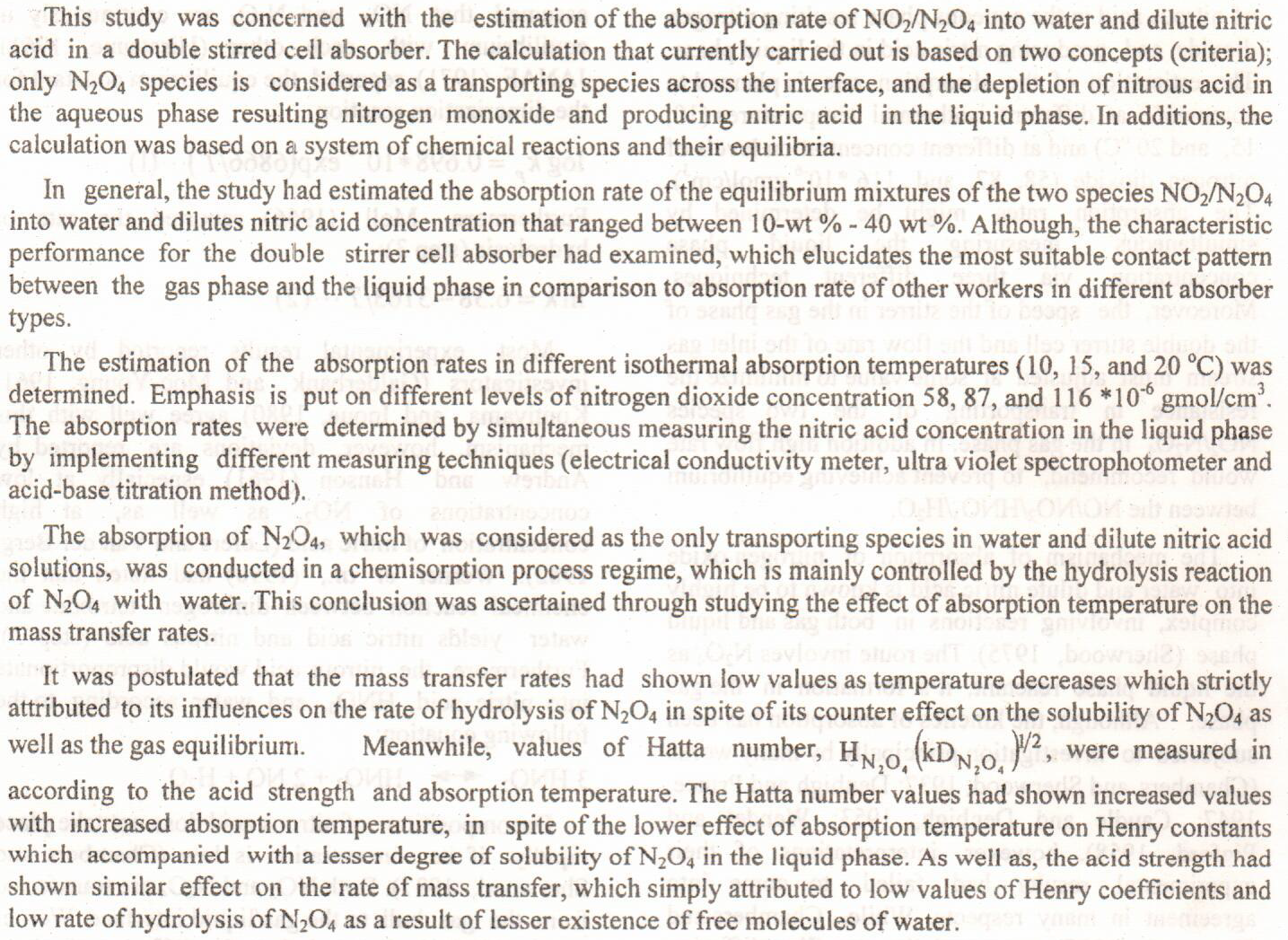
In this study, a brand-new double transform known as the double INEM transform is introduced. Combined with the definition and essential features of the proposed double transform, new findings on partial derivatives, Heaviside function, are also presented. Additionally, we solve several symmetric applications to show how effective the provided transform is at resolving partial differential equation.
 (1)
(1)
 (3)
(3)
 (2)
(2)
 (4)
(4)
 (5)
(5)
Corrosion behavior of aluminum alloy 7025 was investigated in hydrochloric acid (pH=1) containing 0.6 mol.dm-3 NaCl in the existence and absence of diverse concentrations of sulphamethoxazole as environmentally friendly corrosion inhibitor over the temperature range (298-313)K. Electrochemical polarization method using potentiostatic technique was employed. The inhibition efficiency has been raised with increased sulphamethoxazole concentration but lessened at temperature increases. The highest efficiency value was 96.5 at 298 K and 2 x10-4 mol.dm-3 concentration of sulphamethoxazole. The sulphamethoxazole adsorption was agreed with Langmuir adsorption isotherm. Some thermodynamic parameter (△Gads) and activation energy (Ea) were determin
... Show More (5)
(5)
 (2)
(2)
Carbon nanoparticles are prepared by sonication using carbon black powder. The surface morphology of carbon black (CB) and carbon nanoparticles (CNPs) is investigated using scanning electron microscopy (SEM). The particles size ranges from 100 nm to 400 nm for CB and from 10 nm to 100 nm for CNPs. CNPs and CB are mixed with silicon glue of different ratios of 0.025, 0.2, 0.05, and 0.1 to synthesis films. The optical properties of the prepared films are investigated through reflectance and absorbance analyses. The ratio of 0.05 for CNPs and CB is the best for solar paint because of its higher solar water heater efficiency and is then added to the silicon glue . Temperature of cold water and temperature of hot water in storage tank were ta
... Show MoreThe injection of Low Salinity Water (LSWI) as an Enhanced Oil Recovery (EOR) method has recently attracted a lot of attention. Extensive research has been conducted to investigate and identify the positive effects of LSWI on oil recovery. In order to demonstrate the impact of introducing low salinity water into a reservoir, simulations on the ECLIPSE 100 simulator are being done in this work. To simulate an actual reservoir, an easy static model was made. In order to replicate the effects of injecting low salinity water and normal salinity, or seawater, the reservoir is three-phase with oil, gas, and water. It has one injector and one producer. Five cases were suggested to investigate the effect of low salinity water injection with differen
... Show More (1)
(1)
Sustainable crop production in a coarse soil texture is challenging due to high water permeability and low soil water holding capacity. In this paper, subsurface water retention technology (SWRT) through impermeable polyethylene membranes was placed at depth 35 cm below ground surface and within the root zone to evaluate and compare the impact of these membranes and control treatment (without using the membranes) on yield and water use efficiency of eggplant inside the greenhouse. The study was conducted in Al-Fahamah Township, Baghdad, Iraq during spring growing season 2017. Results demonstrated the yield and water use efficiencies were 3.483 kg/m2 and 5.653 kg/m3, respectively for SWRT treatment p
... Show More (5)
(5)
The present paper is an experimental study to improve the productivity of the conventional solar still. This done by modifying conventional still in a way that the distilled basin is larger than distillation basin, thus providing an increase in the condensation surface and speeding up the condensation process. Moreover, increase in the dimensions of the distilled base helps coupling reflective panels to the distilled base to reflect incident solar radiation to the distillation basin. For this purpose , two solar stills were made, one conventional designand another made according to the proposed design. The two solar stills were tested during the period from February to July 2009 under varying weather conditions of Basra, Iraq (latitude o
... Show More